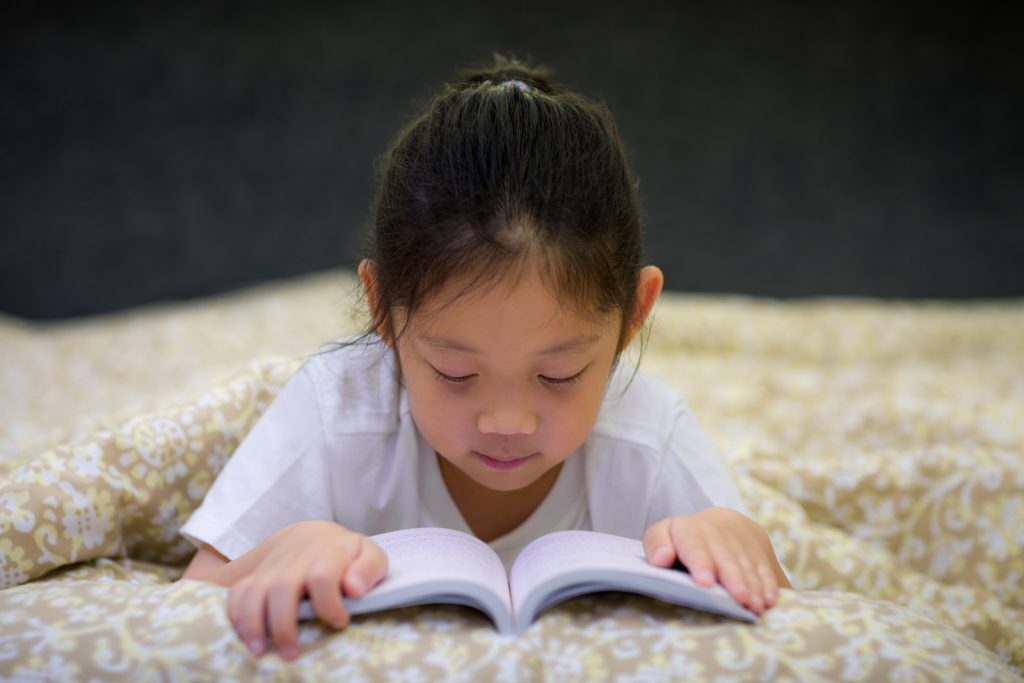Children’s Books Requirements – Quality Control Regulations
Regulations and Requirements for Publishing Children's Books

Definition of Children's Books

When if comes to children's products and quality control, the category children’s books are defined ordinary books printed on cardboard or paper, with toners or inks, and bounded/finished using a conventional method that is intended to be read or has educational value.
The definition of Consumer Product Safety Commission's (CPSC) children books would not include the following types of books
- inherent play value
- designed or intended for use with children who are three years old or younger
- any toy or other article that is not a book that is sold or packaged with a normal book
CPSC Regulations and Requirements for Children's Books

In general, all accessible components of children's products must be tested to demonstrate compliance with the lead content limit of 100 parts per million (ppm). However, there is an exemption from total lead content testing requirements for “ordinary books” and “ordinary paper-based printed materials,” as defined in Pub. Law No. 112-28.
As opposed to the definition of "children's books" we've already shared, ordinary paper-based printed materials are also printed on paper or cardboard, but aren't necessarily books. Examples include:
- magazines
- posters
- greeting cards
- similar products which are printed with inks or toners and bound and finished using a conventional method.
This lead testing exemption for ordinary paper-based materials does not apply if the item:
- is printed on material other than paper or cardboard
- contains non-paper-based components (ex. metal or plastic parts)
- includes accessories that are not part of the binding and finishing
The Children’s Product Certificate (CPC) requires a list of applicable citations for the product being certified. The citation for total lead content in substrate materials is: 15 USC § 1278a. If you need this testing exemption, you will need to reference PL 112-28 and specify that if your product meets the definition of an ordinary book or ordinary paper-based printed material.
Children's Product Certificate (CPC) for Books
Juvenile Product Manufacturers and importers of children’s products must certify compliance with applicable federal safety requirements in a Children’s Product Certificate (CPC). In most instances, testing by a third party CPSC-Approved Laboratory must serve as the basis for the production of your CPC. Here is a video series that may help you understand the CPC requirements
- The first video covers information on what is needed to produce a CPC.
- The second video shares three CPC examples to help you create your own Childen's Product Certificate
- The third video includes FAQs
Once you have created a CPC, it is not necessary to submit it or get it approved by the CPSC.
CPC requirements for children's books
- CPCs must accompany each product or product shipment
- Be furnished to each distributor or retailer
- Be made available to the CPSC or U.S. Customs upon request
If all of these conditions are satisfied, either send us an actual hard copy of the CPC or send us the CPC electronically, e.g., through the dedicated website URL specified on your invoice. (See these frequently asked questions (FAQs) for more information.)
Small Batch Manufacturer Qualification for Children's Books Sellers
If you aren't manufacturing a large quantity, you may be except from certain requirements. The CPSC determines this on a case-by-case basis. To determine eligibility, check to see which group you fall under.
Group A Requirements
“Group A” category requires testing at a CPSC-accepted test laboratory. In other words, registered small batch manufacturers must test their products for compliance with all “Group A” requirements, much like any other company.
Group B Requirements
“Group B” category does not require testing at a CPSC-accepted test laboratory though you would still need to comply with any “Group B” requirement. If you have the tools and expertise to conduct “Group B” tests yourself, this is permitted.
Small batch manufacturers may also rely on timely testing by their supplier or any laboratory (not necessarily a CPSC-accepted laboratory). Find a manufacturer who maintains updated written records that their product complies with general product safety requirements.
More information about small batch manufacturing is available here or here.
CPSC-Accepted Labs for Juvenile Products
If you need a quality control services from third-party children's products testing, look for a CPSC-accepted laboratory. Juvenile Products Lab Testing is available worldwide.
Get estimates from a few laboratories to compare recommendations. Manufacturers and importers must also ensure that their products are periodically tested in accordance with 16 CFR § 1107.21. The majority of children’s products will require annual testing.
Regulations for selling children's products for children 12 years and younger.
All children’s products must include permanent tracking info on the product and its packaging, to the extent practicable. Additional information is available here: business guidance page and by watching this short CPSC YouTube Video. (For additional guidance on what is considered a "children's product," please review CPSC staff's frequently asked questions.)
Please Note: The CPSC does not require you to have your tracking label certified by a CPSC-accepted third party testing laboratory. It also does not require you to certify compliance with the tracking label requirement in your Children’s Product Certificate (CPC).
Small parts for children's products
In general, small parts are banned in toys and children's products under 3 years old. However, some articles are specifically exempt from CPSC mandatory requirements for small parts under 16 CFR § 1501.3 including, but not limited to, the following:
- Books and other articles made of paper
- Drawing materials such as crayons, chalk, pencils, pens, finger paints, watercolors, and other paint sets
- Children’s apparel and accessories such as shoelace holders and buttons
- Grooming, feeding, and hygiene products, such as hair brushes, utensils, plates and drinking cups, diaper pins and clips, barrettes, toothbrushes
- Modeling clay, kinetic sand and similar products
- Baby rattles
- Pacifiers and pacifier clips
Children's books regulations
Small batch manufacturers may be exempt from certain CPSC testing requirements.